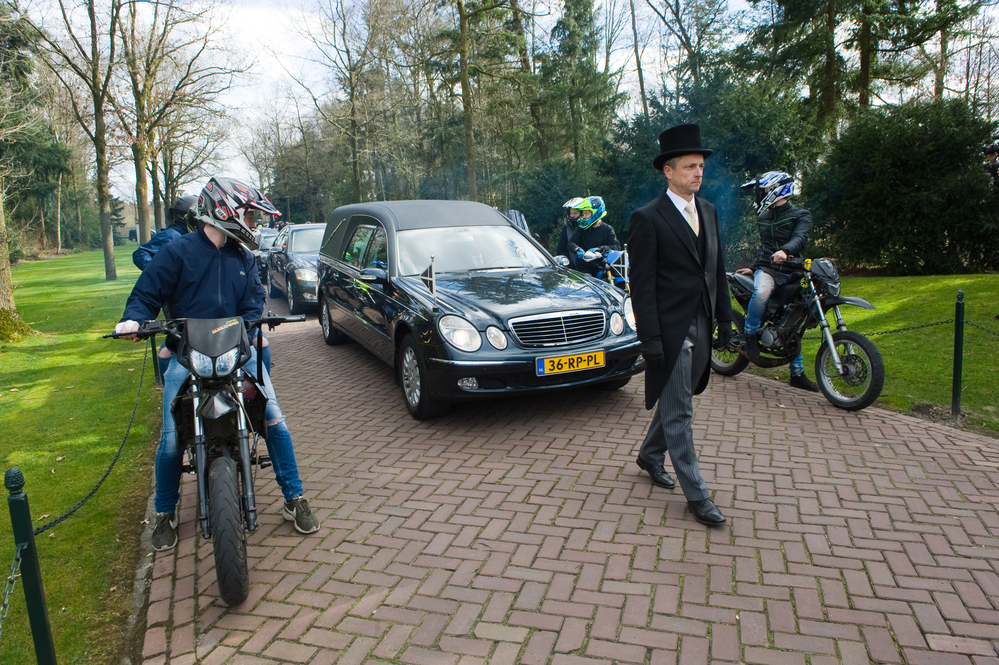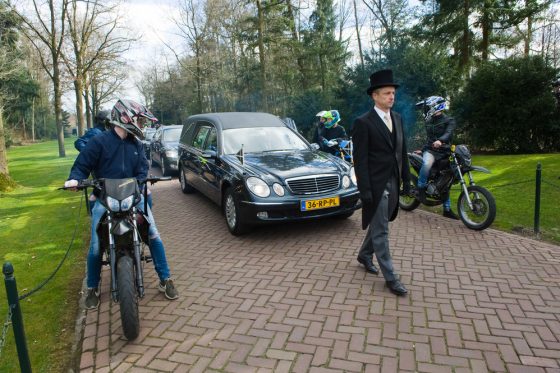Inburgering with DutchNews.nl: dealing with death


The summer break may be over, or almost over for some, but you still have time to catch up on some Dutch culture with the DutchNews.nl inburgering course.
Lesson 23: Key facts about death
Enough of the jollity and fun. Never let it be said we shy away from difficult topics. So here’s some useful information about death in the Netherlands.
Insured for death
Some 60% of Dutch households have funeral insurance – the Dutch love insurance after all and this is one policy which is bound to pay out at some point. But no matter how much you pay for your funeral in advance, there are always stories in the papers about grieving relatives being fleeced by funeral directors for extra cars, coffee and cake.
Group of Death
Every year in the Netherlands a handful of people die alone, with no friends or family. In 2002, a poet known as F. Starik came up with the idea of the Poule des doods – a pool of poets who write and read a poem for the people who have no mourners at their funeral. Details of every funeral, plus poem, are on the De Eenzame Uitvaart (lonely funeral) website. Don’t read unless you want to weep. Starik himself died in 2018.
The cost of death
A funeral – service and cremation or burial – will cost you upwards of €7,000 depending on the extras. The dreaded coffee and cake for 50, for example, will add around €250 to the bill. But there is a new trend in the Netherlands towards budget funerals with no ceremony at all – a bargain at €1,200, which may or may not include a corrugated cardboard coffin. By the way, if you have pallbearers they may well be students. It is a popular student job.
Disposal of the body
The government is set to approve ‘cremation by water’ as a new way of disposing of dead bodies in addition to burial and cremation. Also known as resomation, or water cremation, the process is a safe and sustainable alternative to burial or cremation by fire, according to the national health council.
The crematorium
Research by the crematoria association in 2010 showed Dutch crematoria only collect an average of 50 grammes of gold and other precious metals per body, but they could collect up to 150 grammes. The money raised from selling the gold, jewellery and other recyclables is, they say, given to charity.
The ashes
Once you’ve been cremated, the funeral home will keep your ashes for a full month. This is in case they are needed for a criminal investigation – that is the official line anyway. After that, you can pick them up. But scatter them where ever you like? Oh no. This is the Netherlands, so there are strict rules about that. You need to ask permission from the landowner and that, if it is a local authority, can be rather expensive as well – upwards of €1,000.
Graveyards
Still, getting buried in the Netherlands will cost you a whole lot more. The shortage of space means graveyards are scarce – so most people tend to ‘rent’ a grave for 10 or 20 years. After that, unless your family coughs up to keep you in place, your remains will be cleared out and placed in a mass grave.
The most expensive council-run graveyard in the country is the Esserveld cemetery in Groningen, where a 30-year lease on a grave cost €8,000 in 2020, according to research by insurance group Monuta. The cheapest council graveyard is in Losser, in Overijssel where a 20 year lease on a grave will cost €748.
There has been a surge in interest in other, green burials as well, such as the mushroom coffin developed by Dutch students.
Funeral music
According to funeral insurer Dela, the most popular song at Dutch funerals is Time to Say Goodbye by Andrea Bocelli & Sarah Brightman, followed by Marco Borsato’s Afscheid Nemen Bestaat Niet (there is no such thing as goodbye) and Mag ik dan bij jou by Claudia de Breij
After death
Don’t worry if you have not made a will. This being the Netherlands, there are very strict laws to cover wills and inheritances. That’s why there is a special breed of expensive lawyer, known as a notaris, to take care of it all. For example, you cannot disinherit a child no matter how much you would like to because they have a legal right to a percentage of your property and cash. You can, however, refuse to accept an inheritance, especially if you suspect it may be made up of debts (like unpaid funerals).
Death in a proverb
And if you are adding up the cost of dying in the Netherlands, do remember this very useful Dutch saying: De een zijn dood is de ander zijn brood – one man’s death is another man’s money. Just about sums it all up really. After all, in een doodshemd zitten geen zakken, (there are no pockets in a shroud – you can’t take it with you).
If you want to find out more, Amsterdam even has a museum devoted to funerals.
Thank you for donating to DutchNews.nl.
We could not provide the Dutch News service, and keep it free of charge, without the generous support of our readers. Your donations allow us to report on issues you tell us matter, and provide you with a summary of the most important Dutch news each day.
Make a donation